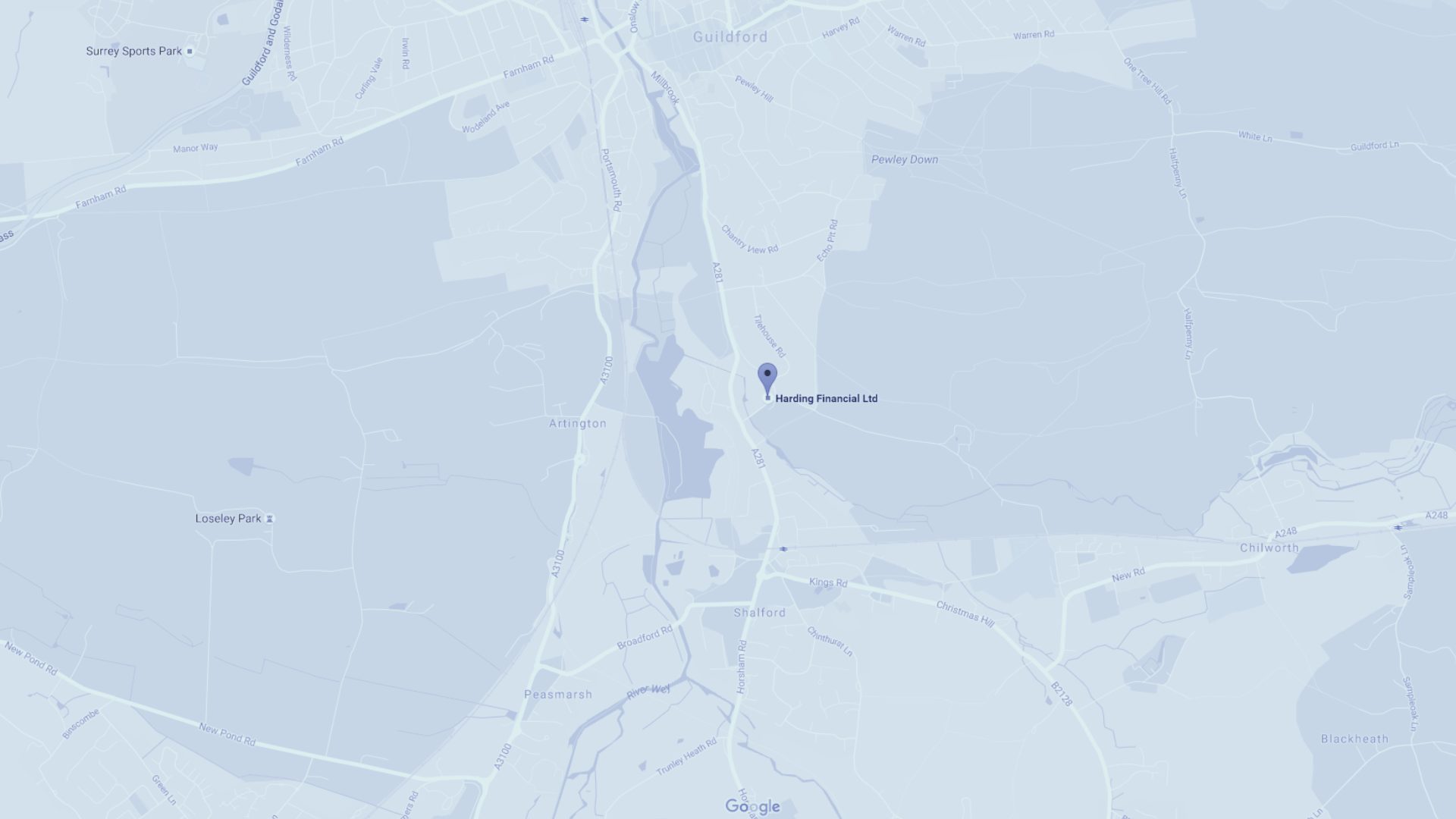
The Autumn Budget 2024 - how might it affect you?
At last, the long awaited budget has arrived!
The Autumn Budget 2024 - how might it affect you?
It’s been no secret that Rachel Reeves’ focus has been to fill the “black hole” in government finances. So, how might the Labour Party’s first budget in 15 years affect you, our clients?
To discuss aspects of the budget in more detail, ahead of your next meeting with us, please don’t hesitate to contact your Financial Planner on 01483 802010.
4.1% increase to the State Pension
The Chancellor confirmed a 4.1% increase to the basic and new State Pension as well as the standard minimum guarantee for Pension Credit, from April next year.
The full new State Pension will rise from £221.20 to £230.25 a week, providing an additional £470 a year, while the full basic State Pension will increase from £169.50 to £176.45 per week, worth an extra £360 annually.
Personal tax thresholds to increase with inflation from April 2028
The Chancellor has confirmed that the income tax personal allowance, higher rate threshold and national insurance contributions upper earnings limit and upper profits limit will remain frozen until April 2028 but will then start to increase by inflation.
Carer’s Allowance
From 6 April 2025 the weekly earnings limit for Carer’s Allowance will increase to £196, meaning carers can earn up to this amount a week, without forfeiting carers allowance benefit. Carers Allowance currently provides eligible carers with £81.90 a week. This increase to the earnings limit is aimed to help carers balance work and caring responsibilities, enabling them to stay in the job market.
Increase to Minimum Wage
The National Living Wage will increase from £11.44 to £12.21 an hour from April 2025, this is a 6.7% increase worth £1,400 a year for an eligible full time worker. The National Minimum Wage for 18-20 year olds will also rise from £8.60 to £10.00 an hour.
IHT Thresholds
The inheritance tax thresholds (the amounts an individual can own on death before inheritance tax falls due) are as follows:
£325,000 – nil rate band
£175,000 – residence nil rate band
It was confirmed that these will now remain fixed at their current levels until April 2030.
Inherited Pensions
From 6 April 2027, when a pension scheme member dies with unused funds or without having accessed all of their pension entitlements, those unused funds and death benefits will be treated as being part of that person’s estate and may be liable to Inheritance Tax.
This is not currently the case for pension schemes that have discretion as to where death benefits are paid, based on current regulation these schemes are excluded from the person’s estate when calculating the inheritance tax liability.
The proposed changes will apply to both defined contribution (DC) and final salary or defined benefit (DB) schemes.
Any pension death benefits being passed to a spouse/civil partner will be exempt.
A technical consultation has been issued on the processes required to implement these changes and the government will publish a report during 2025. So there’s plenty of time to review the suitability of your pension death benefit nominations with your Financial Planner at your next review meeting.
It’s important to remember that if your estate, including pensions, is valued at less than £1,000,000 (assuming you’re a married couple, with a main residence valued at over £350,000 that you’re leaving to your direct descendants) then your pension is going to be just as inheritance tax beneficial after the 6th April 2027 as it is today!
Business Relief & Agricultural Relief:
From 6 April 2026, agricultural relief (AR) and business relief (BR) will be reformed. As it currently stands inheritance tax relief of up to 100% is available on qualifying business and agricultural assets, saving the standard rate of 40% inheritance tax. The reforms are summarised below:
- The 100% rate of relief will continue for the first £1 million of combined agricultural and business property to help protect family farms and businesses, and it will be 50% thereafter. This 50% relief effectively means inheritance tax on this amount will be levied at 20% instead of 40% (based on current rates).
- The rate of business relief will reduce from 100% to 50% in all circumstances for shares designated as “not listed” on the markets of recognised stock exchanges, such as Alternative Investment Market (AIM).
For example; if you have £2 million in shares in an unquoted company, 100% relief would apply to the first £1million and 50% relief would apply to the second £1million. This means a potential inheritance tax liability of £200,000 (rather than the current tax bill of £0) would apply before the application of any other exemptions and the nil rate band.
If you have a £2 million portfolio of shares designated as “not listed” on the markets of recognised stock exchanges such as AIM, 50% relief will apply. This means a potential inheritance tax liability of £400,000 (rather than the current tax bill of £0).
It could be perhaps that insuring the inheritance tax liability, now due on agricultural or business assets, provides a way of estates being able to settle the inheritance tax due, whilst allowing the property/assets to be passed onto the next generation. There is now an 18 month period to consider and implement appropriate strategies to help combat the effects of this legislation change and where appropriate your Financial Planner will discuss with you.
Capital Gains Tax Rate
Capital gains tax (CGT) rates will increase from 10% to 18% for basic rate taxpayers and from 20% to 24% for higher rate and additional rate tax payers. This has taken immediate effect. There has been no change to CGT rates on residential property which continue to be taxed at 18% and 24%.
In addition, there has been no change made to the CGT annual exemption of £3,000 for individuals and £1,500 for trusts. So, as ever, it’s important to make use of this tax free allowance each year where you have investment vehicles such as collective investment accounts. In addition, reporting and recording any annual CGT losses will be helpful for the future (when you can then use these losses to offset gains in excess of the allowance).
Business Asset Disposal Relief (also known as entrepreneurs relief)
This relief provides a special rate of capital gains tax of 10% on disposals of business assets up to a lifetime allowance of £1million. From 6 April 2025, this rate of CGT will increase to 14% and from 6 April 2026 to 18%, on disposals up to £1million.
Stamp Duty Land Tax
An increase to the cost of buying a second (third or fourth etc) property, buy to let residential property or for companies purchasing residential property. Anyone buying additional property to their main residence already faces an additional stamp duty surcharge of 3% but the government have increased this to 5%. This change is effective immediately.
VAT on private school fees
As expected, fees for private education services will be subject to VAT at the standard rate of 20% from 1 January 2025. This will also apply to boarding services provided by private schools.
Non-Domicile Changes
The concept of non-domicile residents will be abolished from 6 April 2025. This is to be replaced with a new Foreign Income and Gains (FIG) regime which is determined by UK residency rather than domicile.
In conclusion
As expected over recent weeks and months, there have been some significant changes being made to the UK’s tax structures that will undoubtedly affect private clients like you. The need for good financial advice is clearer than ever. We look forward to discussing these matters further with you in the time ahead.
Earlier this year, our Corporate Services division, that supports the financial prosperity of companies, charities and education institutions across the UK, was rebranded as The Harding Hub. If you’re somebody that owns or runs a business, you may be interested in reading their analysis of the budget (and their suggestions on how to reduce its financial impact) on their website, here
Important notice:
This article has been based on our understanding of the new rules as we understand them at the time of publishing and could be subject to change.
The Financial Conduct Authority does not regulate tax advice
This article should not be taken as advice.
Tax planning is a complicated area and we would recommend you consult a qualified professional to understand the impact the above rules may have on your personal situation.
Contact Us
Get in touch today
Call us, email, drop in, or fill in the form so that one of our expert advisers can be in touch.
We look forward to hearing from you and being your financial partner.
Guildford Office:
The Estate Yard
East Shalford Lane
Guildford
Surrey
GU4 8AE
London Office: c/o The Ministry, 79-81 Borough Rd, London, SE1 1DN
